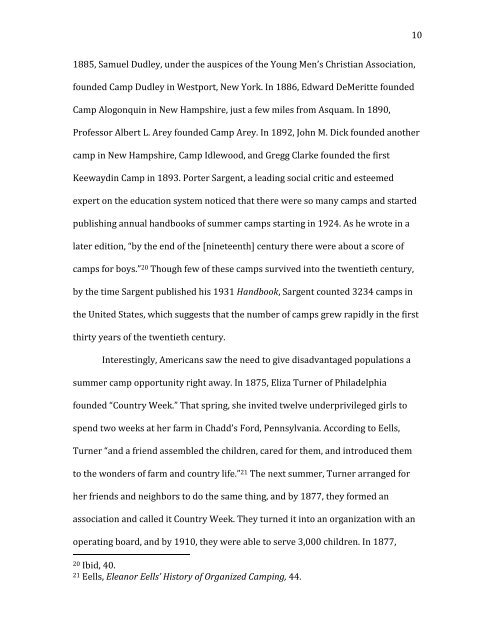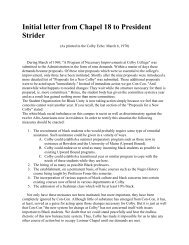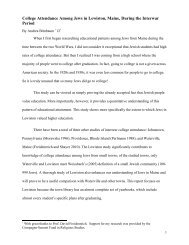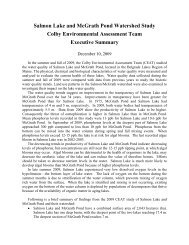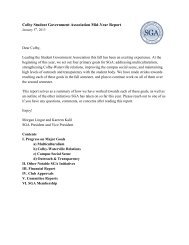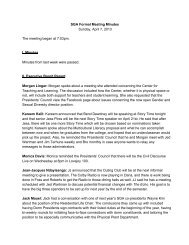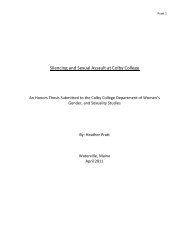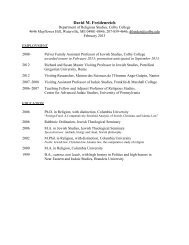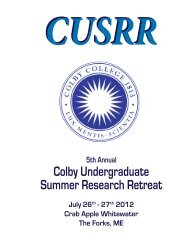The New Promised Land: Maine's Summer Camps for Jewish Youth ...
The New Promised Land: Maine's Summer Camps for Jewish Youth ...
The New Promised Land: Maine's Summer Camps for Jewish Youth ...
You also want an ePaper? Increase the reach of your titles
YUMPU automatically turns print PDFs into web optimized ePapers that Google loves.
1885, Samuel Dudley, under the auspices of the Young Men’s Christian Association,<br />
founded Camp Dudley in Westport, <strong>New</strong> York. In 1886, Edward DeMeritte founded<br />
Camp Alogonquin in <strong>New</strong> Hampshire, just a few miles from Asquam. In 1890,<br />
Professor Albert L. Arey founded Camp Arey. In 1892, John M. Dick founded another<br />
camp in <strong>New</strong> Hampshire, Camp Idlewood, and Gregg Clarke founded the first<br />
Keewaydin Camp in 1893. Porter Sargent, a leading social critic and esteemed<br />
expert on the education system noticed that there were so many camps and started<br />
publishing annual handbooks of summer camps starting in 1924. As he wrote in a<br />
later edition, “by the end of the [nineteenth] century there were about a score of<br />
camps <strong>for</strong> boys.” 20 Though few of these camps survived into the twentieth century,<br />
by the time Sargent published his 1931 Handbook, Sargent counted 3234 camps in<br />
the United States, which suggests that the number of camps grew rapidly in the first<br />
thirty years of the twentieth century.<br />
Interestingly, Americans saw the need to give disadvantaged populations a<br />
summer camp opportunity right away. In 1875, Eliza Turner of Philadelphia<br />
founded “Country Week.” That spring, she invited twelve underprivileged girls to<br />
spend two weeks at her farm in Chadd’s Ford, Pennsylvania. According to Eells,<br />
Turner “and a friend assembled the children, cared <strong>for</strong> them, and introduced them<br />
to the wonders of farm and country life.” 21 <strong>The</strong> next summer, Turner arranged <strong>for</strong><br />
her friends and neighbors to do the same thing, and by 1877, they <strong>for</strong>med an<br />
association and called it Country Week. <strong>The</strong>y turned it into an organization with an<br />
operating board, and by 1910, they were able to serve 3,000 children. In 1877,<br />
20 Ibid, 40.<br />
21 Eells, Eleanor Eells’ History of Organized Camping, 44.<br />
10


